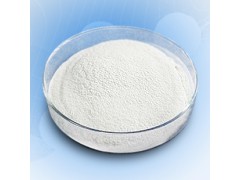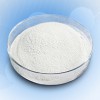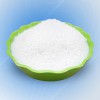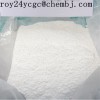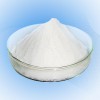Name: L(+)-Ascorbic acid,L-Ascorbic acid,VC
EINECS: 200-066-2
Molecular Formula: C6H8O6
CAS Registry Number: 50-81-7
HS Code: 29362700
Molecular Structure: This structure is also available as a 2d Mol file Chemical Properties
Appearance: White to very pale yellow crystalline powder with a pleasant sharp acidic taste
Molecular Weight: 176.12
Density: 1.7
Boiling Point: 415.8 °C at 760 mmHg
Melting Point: 190-192℃
Flash Point: 180.4 °C
Alpha: 20.5 o (C=10,H2O)
Storage Temperature: 0-6°C
Refractive index: 1.711
Solubility: Water solubility: 50 mg/mL at 20 °C, clear, nearly colorless
Stability: Stable. May be weakly light or air sensitive. Incompatible with oxidizing agents, alkalies, iron, copper. Safety Data of 50-81-7
Vitamin C or L-ascorbic acid, or simply ascorbate (the anion of ascorbic acid), is an essential nutrient for humans and certain other animal species. Vitamin C refers to a number of vitamers that have vitamin C activity in animals, including ascorbic acid and its salts, and some oxidized forms of the molecule like dehydroascorbic acid. Ascorbate and ascorbic acid are both naturally present in the body when either of these is introduced into cells, since the forms interconvert according to pH.
Vitamin C is a cofactor in at least eight enzymatic reactions, including several collagen synthesis reactions that, when dysfunctional, cause the most severe symptoms of scurvy.In animals, these reactions are especially important in wound-healing and in preventing bleeding from capillaries. Ascorbate may also act as an antioxidant against oxidative stress.However, the fact that the enantiomer D-ascorbate (not found in nature) has identical antioxidant activity to L-ascorbate, yet far less vitamin activity,underscores the fact that most of the function of L-ascorbate as a vitamin relies not on its antioxidant properties, but upon enzymic reactions that are stereospecific. "Ascorbate" without the letter for the enantiomeric form is always presumed to be the chemical L-ascorbate.
Contact:roy24ycgc@chembj.com
Whatsapp:+8618164087541

